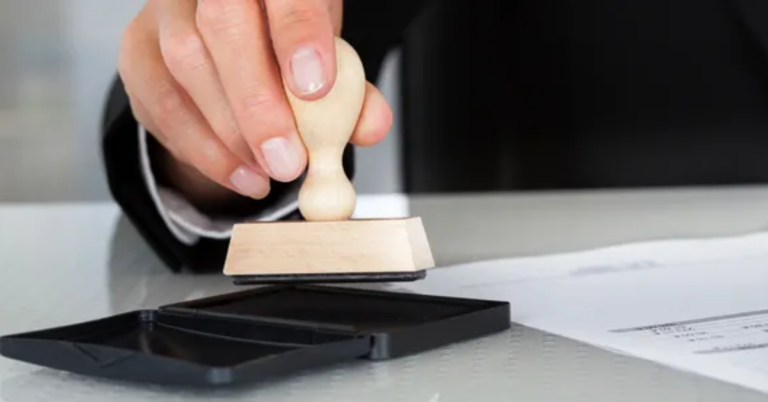Do Mobile Notaries Keep Copies of Your Documents?
When you engage a Mobile Notary to certify your signature or identity, it’s natural to wonder whether the notary will retain a copy of your important paperwork. Most notaries operate under state-specific regulations that govern what records they must maintain, if any. While some states require notaries to keep a journal or log containing signer details and brief document descriptions, others do not mandate any copy retention. Understanding these guidelines can help you protect your privacy and ensure you’re comfortable with the notarial process.
A Hospital Notary Service is often called into action when patients are too ill to visit a notary’s office. In these sensitive environments, notaries balance patient confidentiality with record-keeping obligations. Hospitals may impose additional privacy protocols—beyond state law—requiring notaries to handle copies of medical directives or consent forms in a secure manner. Knowing whether your document will be stored can help you plan for safe disposal or retrieval of any retained copies.
For individuals in correctional facilities, a Jail Notary Service offers essential support for legal documents and court filings. Correctional institutions often require notaries to log every notarization, and some jurisdictions permit the notary to keep brief copies or summaries. These logs help maintain accountability within the facility but also raise questions about inmate privacy. Understanding how your document is handled can guide you in requesting its return or confirming its destruction after notarization.
Sometimes you may require Emergency Notary Services outside normal business hours for urgent documents—power of attorney forms, last-minute contracts, or crisis-related authorizations. Emergency notaries often travel to your location with minimal time to process records, yet state laws may still obligate them to maintain a notarial journal. Knowing whether a copy is kept during such rushed appointments can influence your decision to request immediate disposal or ask for digital receipts instead.
Travelers can access Airport Notary Services for last-minute document certification before a flight. Airports present unique security challenges, and notaries may be subject to both state record-keeping laws and airport authority policies. While notaries in airports typically keep only minimal logs—such as date, time, and signer name—some may retain copies of bills of lading or travel authorizations. Clarifying these practices before you board ensures your documents won’t linger unnecessarily.
How Notaries Manage Document Copies
Notarial record-keeping varies widely across the United States and internationally. In the U.S., a notary public is appointed by the state government and must comply with that state’s notary statutes. Some states—like California, Texas, and Florida—mandate that notaries maintain a sequential journal, logging the date and type of each notarization, a description of the document, the signer’s signature, and thumbprint in certain cases. Other states, such as New York and Virginia, do not require journals at all, though they encourage voluntary record-keeping for liability protection. Whether or not your notary retains an actual copy of the document depends on the journal requirements: when a journal entry suffices, copies are usually not kept. However, if a journal entry requires attaching a photocopy, the notary may keep that copy, subject to state retention periods.
Even in journal‐required states, notaries often choose to keep only handwritten logs rather than photocopies, minimizing their storage burden and safeguarding client privacy. With electronic notarization on the rise, e-notaries may store digital copies of documents, encrypted and stored on secure platforms. These electronic records can include the notarized document itself, an electronic journal entry, and a digital seal. Electronic notaries must comply not only with state laws but also with data-security standards, ensuring that stored copies are protected against unauthorized access, tampering, and data breaches.
Implications for Specialized Notary Services
Notarial duties become more complex when applied to specialized contexts. Below are considerations for three common specialized services:
Hospital Notary Service Policies
Hospital notaries often operate under both state notary laws and hospital regulations. In many cases, a hospital will have its own policy on record retention to protect patient privacy under HIPAA. As a result, notaries may be prohibited from retaining copies of certain medical documents—even if state law allows it—or may be required to submit retained copies to the hospital’s legal department for secure archiving. If you’re having advance directives or medical consent forms notarized, ask whether the notary will keep any copies and how those copies will be destroyed or returned once the document’s validity period lapses.
Jail Notary Service Protocols
Notaries in correctional facilities must coordinate with facility administration and follow state guidelines. Some jurisdictions require that notaries keep copies of all inmate notarizations to prevent fraud and maintain institutional oversight. Journals in this environment often go beyond basic logs, including inmate ID numbers, officer attestations, and document descriptions. In some states, the notary must surrender these logs or copies to the facility at the end of their assignment, ensuring the jail retains permanent records. Knowing these protocols can help you request a receipt or ensure personal documents aren’t stored longer than necessary.
Emergency and Airport Notary Services Considerations
Emergency and airport notaries face unique time constraints and security protocols. While state law typically still mandates journal entries, the chaotic nature of these services means notaries often carry portable journals—sometimes digital. In an airport, security screenings may limit a notary’s ability to transport document copies, leading them to rely solely on minimal handwritten logs. Similarly, emergency notaries rushing to your location may ask you to sign an acknowledgment form in lieu of keeping a full document copy. Before proceeding, clarify whether any copies or digital backups will be stored and how you can request their destruction or return once notarization is complete.
Conclusion
Whether a notary keeps a copy of your documents depends on a combination of state regulations, service context, and individual notary practices. While many notaries limit their record-keeping to journals, some specialized services—particularly in hospitals, jails, emergencies, and airports—may involve retaining photocopies or digital files. To protect your privacy and ensure you maintain control over your documents, always ask your notary what records will be kept, how they will be stored, and how you can request their disposal or return. By understanding these practices in advance, you can proceed with confidence, knowing exactly how your sensitive paperwork will be handled.







